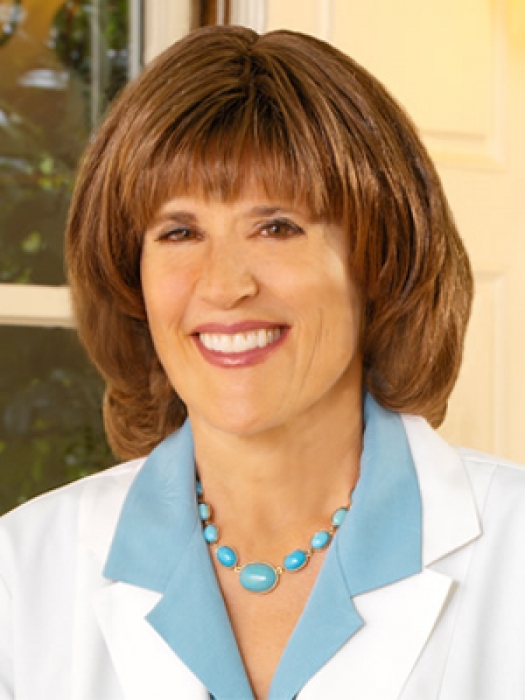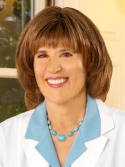susanlark.jpg

Susan Lark, MD
While breast cancer can affect any woman, the risk of developing it is significantly higher if you have one or more risk factors that are out of your control, such as being genetically predisposed or having dense breast tissue. But there are plenty of contributing factors you can control 100 percent. Taking full advantage of them can hugely lower your risk. Based on research reported within the past five years, I'm going to share with you the best things you can do, starting today, to dramatically reduce your risk of developing breast cancer. I strongly suggest that you integrate as many of these measures as possible into your daily life.
Protective Supplements
When it comes to breast cancer prevention, you don't have to take fancy supplements or concoctions. According to recent studies, two very common nutrients provide great protection against the disease – and one of them is essentially free!
Vitamin D3. Sometimes called the "sunshine vitamin," vitamin D3, either from sun exposure or from taking a supplement, cuts the odds of getting breast cancer in half in light-skinned women (December 2007, American Journal of Epidemiology; October 2008, American Journal of Epidemiology). Interestingly, vitamin D3 also appears to influence another strong breast cancer risk factor: dense breast tissue. A recent study showed that the more vitamin D3 a woman gets, the less dense her breasts are (October 2007, Breast Cancer Research). Since increased vitamin D3 intake and decreased breast density are both significant protectors against breast cancer, I recommend taking a minimum of 2,000 IU of vitamin D3 daily in divided doses. Try Carlson Ddrops (www.carlsonlabs.com).
Melatonin. As I initially discussed in the February 2007 issue of my newsletter, melatonin is an exciting breast cancer preventative. In one study published in the November 2006 issue of Molecular and Cellular Biochemistry, two groups of laboratory rats with mammary cancer were put on an intense, forced exercise program (30 minutes of swimming, five days per week). At the same time, one of the groups was also given supplemental melatonin. After one month on this program, the rats that got melatonin had normal blood stress hormone levels and no increase in tumor growth, while the rats that were not given melatonin had significantly increased blood levels of stress hormones and their tumors were significantly larger. In my own practice, I have seen melatonin work wonders for breast cancer prevention and treatment, and as a sleep aid. I recommend taking 1-1.5 mg of melatonin each evening before bed, although excellent results may be achieved with as little as 300 mcg per day.
Dietary Factors
You should already be eating plenty of fruits and vegetables for general good health, but for breast cancer prevention, they are critical because they contain numerous anticancer and antioxidant components. Beyond that, there's an enzyme we all naturally have in our bodies called catalase, which is one of our primary defenses against cancer-causing oxidative damage. If you are fortunate enough to have the a form of catalase called "cytosine-cytosine," or CC, found in 64 percent of study volunteers, your breast cancer risk is 17 percent lower than in women who have other forms of catalase. But if, on top of having CC-catalase, you consume more than 10 servings of fruit per week, the breast cancer protection increases to 29 percent. And, if you don't have CC-catalase, you still get increased breast cancer protection from highter dietary intake of fruits and vegetables, especially those that are rich in carotenoids, such as sweet potatoes, carrots, collard greens, kale, spinach, broccoli, mangoes, pumpkin, papayas, and guava, to name a few (January 2005, American Journal of Epidemiology; November 2005, American Journal of Epidemiology).
On top of that, certain species of culinary mushrooms also have anticancer benefits. In China (where the breast cancer incidence is as low as one-fifth of what it is in developed countries), the diets of more than 1,000 women who had breast cancer were compared to the diets of more than 1,000 healthy women of the same age. Researchers found that women who ate 10 grams or more of fresh mushrooms daily (about two shiitakes) cut their odds of getting breast cancer to about a third, compared to women whose diets did not routinely include mushrooms. And, four grams daily of dried mushrooms cut their odds of breast cancer in half (March 2009, International Journal of Cancer).
Mushrooms typically used in traditional Chinese diets include shiitake (Letinula edodes), enoki (Flammulina velutipes), wood ear (Auricularia polytricha), and paddy straw mushrooms (Volvaria volvacea). All are available in fresh or dried forms at Asian markets, online, and in many supermarkets. When dried, most mushrooms shrink to a tenth of their fresh weight. Just pay attention to the weight on the label so that you will know how much to include in your daily diet. (An ounce is about 28 grams.)
Finally, I recommend that you drink green tea. Women who drink three cups or more per day have a 20 to 30 percent reduced risk of first-time or recurrent breast cancer, respectively (May 2009, Breast Cancer Research and Treatment). And, if your diet includes three cups of green tea and 10 grams or more of fresh mushrooms every day, you can cut your odds of getting breast cancer to about a tenth of the odds in women who don't regularly consume mushrooms or green tea (March 2009, International Journal of Cancer).
Lifestyle Factors
Many of these recommendations you've probably heard before, but they bear repeating because they are so important in maintaining not only healthy breasts, but general good health. Plus, recent studies confirm with more certainty than ever that these lifestyle changes are critical to breast health.
Unhealthy weight could equal unhealthy breasts. Higher body mass index is a significant risk factor for not just breast cancer, but fatal breast cancer (October 2005, American Journal of Epidemiology), and the danger isn't just in the morbidly obese. Hormonal and metabolic changes after age 50 are well known to predispose a woman to weight gain, and those who gain more than 24 pounds are over one-and a-half times more likely to get breast cancer than women of the same age whose weight remains stable. Fortunately, women who lose weight, especially after age 50, cut their odds of getting breast cancer in half.
Exert yourself. It's well established that regular exercise is a powerful way to reduce your breast cancer risk. The benefits are compounded when exercise is combined with the joy of having fun. In one study of women age 50 and older, regularly engaging in high recreational physical activity dropped the odds of getting breast cancer by about 66 percent (July 2001, Cancer Epidemiology, Biomarkers & Prevention).
Some examples of ideal exercises for breast cancer prevention include kayaking against the current rather than paddling lazily downstream, and striving to go farther and make better time in distance activities such as bicycling, swimming, walking, or hiking.
Avoid all alcohol. We've heard time and time again that one glass of red wine every so often has some health benefits. But when it comes to breast cancer prevention, you should avoid alcohol completely. In a study of more than 184,000 postmenopausal women between the ages of 50 and 71, as little as 10 grams of alcohol – the standard amount in one drink – significantly increased the risk of getting breast cancer. Compared to women who abstain, the probability of getting breast cancer goes up by 35 percent with consumption of 35 grams of alcohol a day (August 2009, American Journal of Epidemiology).
Avoid HRT. In 2002, scientists reported an up to 79 percent increased risk of breast cancer in women taking typical HRT (conjugated estrogens from horses, plus synthetic progestins). The latest research not only confirms those findings, it magnifies them. Taking HRT causes a woman's risk of breast cancer to increase profoundly and quickly – within just a couple of years after starting HRT. This is, indeed, bad news for women who thought it would be okay to go on hormones just long enough to ease their journey through perimenopause. The good news is that elevated risk goes back down within just a year or two after stopping HRT. So, if you're considering HRT, I urge you to, first of all, be sure you really need hormonal support. If you are sure you do, take bioidentical hormones, and get off the hormones as quickly as possible so that you can get your elevated risk back down (September 2007, Journal of the National Cancer Institute).
Best of luck and health to you!


